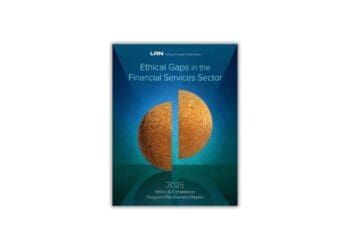Whatever “flavor” of compliance incentives you offer, they need to be reassessed regularly. Jeff Kaplan and Rebecca Walker discuss what to take into account.
The Sentencing Guidelines provide, in relevant part: “the organization’s compliance and ethics program shall be promoted and enforced consistently throughout the organization through … appropriate incentives to perform in accordance with the compliance and ethics program….” Providing discipline for violations is, of course, a form of (dis)incentive, but what is contemplated by the above-cited provision is something different: a positive incentive. This is one of the elements of compliance programs that many companies struggle with in terms of creating effective strategies; this can, in turn, make this a challenging area for program assessment.
Compliance incentives come in two basic “flavors:” tangible and intangible. Both typically should be reviewed in a C&E program assessment.
The most commonly used tangible C&E incentive is inclusion of C&E criteria in performance evaluations and related measures. After answering the threshold question of whether performance evaluations include the use of C&E criteria, what should program assessors be looking for here?
First, and perhaps foremost, assessors should review whether the importance of the C&E component of personnel evaluations is being reinforced through appropriate discussion of this topic in the code of conduct, training and other communications, particularly from senior managers.
Second, assessors should see whether the evaluation materials account for different levels of C&E-related behavior (e.g., outstanding, strong, needs improvement), rather than using a purely binary determination, as well as whether the company provides supervisors with sufficient guidance to conduct effective C&E-related assessments. Finally, an assessment should consider whether guidance and examples provided to supervisors are tailored for different levels in the corporate hierarchy (e.g., what is outstanding for a leader, a manager, other).
Related to the performance evaluation area, one can also provide a targeted approach to incentives through including them in employee and/or business unit performance goals. For instance, in a business unit that has struggled to complete due diligence of third-party providers, achieving such completion can be made part of the business unit leader’s annual plan. The same might be done with training completions.
Offering large bonuses for ethical behavior is quite rare. (We know of one company that gave out several $10,000 awards of this sort, but nothing else like it.) One often hears that such an approach “wouldn’t work with our culture.” Still, one can envision a money-centric culture — such as in the financial services field — where ethics bonuses would be not only appropriate, but also effective.
Intangible incentives – which tend to be recognition programs – are also potentially useful. Here, program assessors should be on the lookout for the following:
- In cases of awards, using the process of selecting nominees to educate employees about the C&E program. Companies should create a campaign around the effort, including having as much senior management involvement as is reasonably possible.
- For more everyday forms of recognition, training managers to identify and (where appropriate) praise others in the work group for ethically exemplary behavior. Based on our assessment experience, we tend to believe that intangible incentives can often be more potent in motivating desirable behavior than the tangible kind.
A very different focus for assessing incentives concerns the extent to which a company’s compensation approach has the effect (presumably unintentional) of promoting noncompliance. The question here is not (we believe) whether an incentive structure creates a risk of wrongdoing. That could be said of virtually any results-based compensation structure. Rather, the inquiry for a program assessor should be whether an incentive structure creates an undue risk of wrongdoing.
Note that this is largely a subjective determination, and there is no universally accepted definition of “undue” to be applied in this context. Indeed, assessing whether compensation creates undue risks in any given setting turns on a variety of factors beyond the specifics of the compensation itself – particularly culture-related ones. But, in our experience, the undue risk formulation works well enough in assessment interviews, with the discussion typically turning on whether a) the performance targets upon which compensation decisions are partly based are realistic or can be met by some employees only through illegitimate means and b) the consequences of failing to meet the targets are overly harsh.
It is also important to consider the extent to which senior leaders, HR and others consider the risks created by compensation when setting goals. Is there an effort to understand the level of pressure created by various employee objectives and goals and the extent to which performance goals create compliance risks? And, finally, assessors should also consider whether the C&E function is able to provide guidance with respect to and is able to weigh in regarding the C&E implications of performance goals and compensation plans.



 Jeffrey M. Kaplan is a partner in the Princeton, New Jersey office of
Jeffrey M. Kaplan is a partner in the Princeton, New Jersey office of  Rebecca Walker is a partner in the law firm of
Rebecca Walker is a partner in the law firm of 









